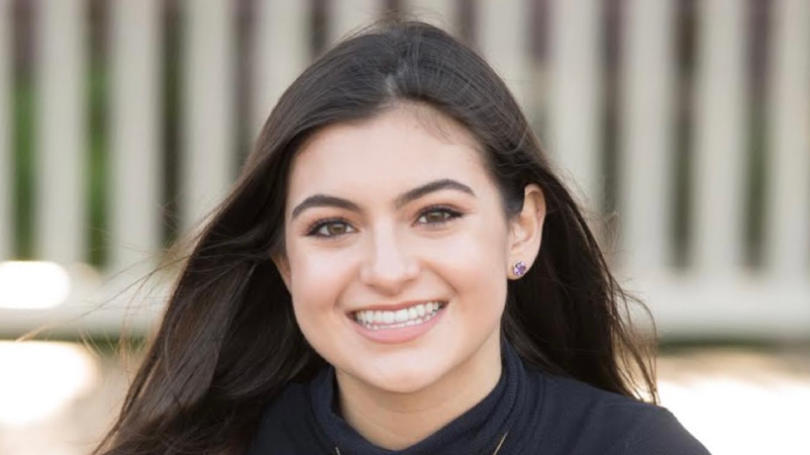
- Public Policy
- Leadership
- Funding
- News & Events
- About the Center
Back to Top Nav
Back to Top Nav
Back to Top Nav
Back to Top Nav
Cristina Javens ’23, a sophomore planning on majoring in Sociology and minoring in Public Policy, was recently awarded the Undergraduate Research and Advising Sophomore Research Scholarship during the Winter and Spring 2021 terms to study the policy positions of Nelson A. Rockefeller ’30 and “Rockefeller Republicans.”
Cristina started her journey with the Rockefeller Center by taking PBPL 5 “Introduction to Public Policy” and by participating in the Dartmouth Leadership Attitudes and Behaviors (D-LAB) program during her first year. Since then, she has taken PBPL 45 (“Introduction to Policy Research”) and recently began working with the Rockefeller Center Director, Professor Jason Barabas, on a series of projects related to the namesake of the Rockefeller Center.
With Professor Barabas serving as her advisor and mentor, Cristina applied for the Undergraduate Research and Advising Sophomore Research Scholarship to work on a project to identify the policy positions of Nelson A. Rockefeller ‘30 and “Rockefeller Republicans” from a variety of sources, such as news stories, biographies, and public opinion polls from the era.
Nelson Rockefeller graduated from Dartmouth College in 1930 and went on to work in the Franklin D. Roosevelt, Harry S. Truman, and Dwight D. Eisenhower presidential administrations before his election in 1958 as the Governor of New York. Ultimately, Nelson Rockefeller served four terms as New York’s governor before becoming the Vice President of the United States in 1974.
Nelson Rockefeller earned a national reputation for his support of policies from all parts of the political spectrum even though he was a life-long Republican. Rockefeller ultimately lost several presidential nomination battles to more conservative Republicans and this project seeks to consider his brand of political partisanship and its relevance today.
Cristina says of the project, “Examining Nelson A. Rockefeller’s role as a “liberal” or “moderate” Republican, also coined “Rockefeller Republican,” is of particular interest considering the current partisan polarization. He and his family were long-time members of the GOP (“Grand Old Party”), but Rockefeller crossed party lines in supporting a number of liberal policies, often at the cost of support from his own party. Our research begins with identifying Rockefeller’s policy positions by examining his biographies, speeches, writing, and legislative actions. Ultimately, we will analyze these centrist “Rockefeller Republican” policy positions alongside public opinion surveys. We aim to understand the role and possible resurgence of the moderate political figure during our modern time of rigid partisanship.”
Professor Barabas is excited to see the project get underway. More specially, Dr. Barabas said “This project is important for several reasons. First, it provides a talented Dartmouth student with an opportunity to participate in an original research project. Second, the research itself relates to the political positions and legacy of Nelson A. Rockefeller ‘30, one of Dartmouth’s most distinguished alums and the person for whom the Rockefeller Center is named. Finally, by exploring ‘Rockefeller Republicans’ and their distinctive blend of liberal and conservative policy views, it may help Americans realize that there are alternatives to the highly polarized stances of the major political parties in the United States.” Reflecting upon his time as a Dartmouth undergraduate in the 1990s, Barabas also added that getting involved in research projects like this one “set the stage for his career path” and his decision to pursue a doctoral degree after he worked in state government and politics.
Cristina has enjoyed the research process and is interested in examining the political system further. She said, “So far, I have really enjoyed learning about Nelson A. Rockefeller’s ability to cross party lines and build coalitions. I often think about how my political consciousness begins at a point when rigid partisanship ran high, particularly amongst elite political leaders. I do not necessarily know what a different world of politics looks like, but I do believe it is a goal we should strive towards. I think that participating in this research will not only give me more perspective but may also motivate me to conduct more research in undergraduate and beyond.”